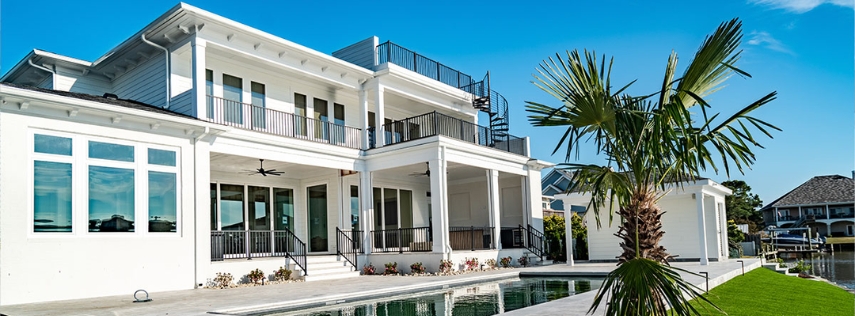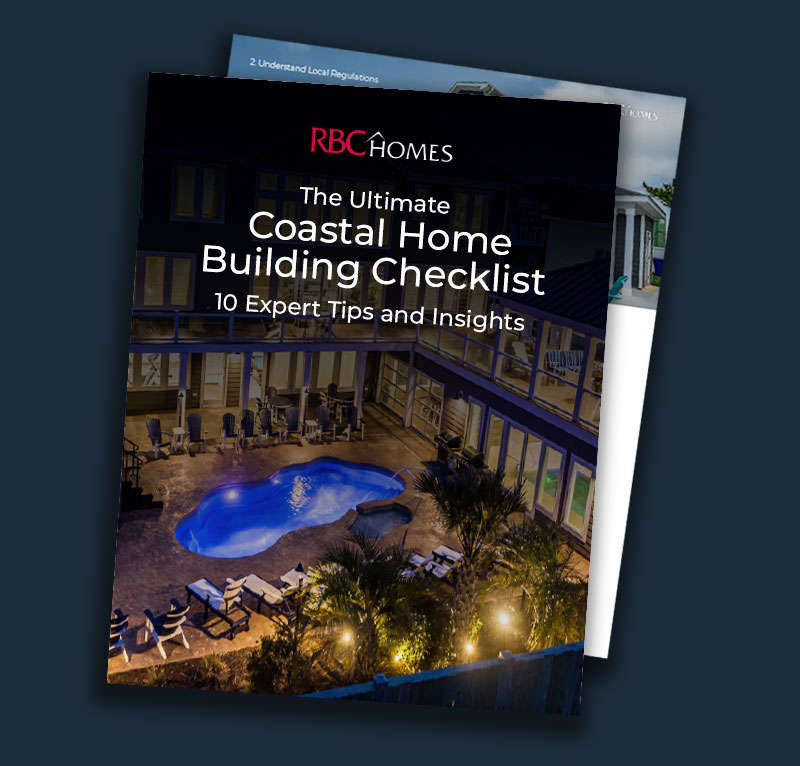Home Improvement in Virginia Beach – 7 Coastal Remodel Ideas
Thinking about giving your home a fresh look or adding value in the beautiful coastal city of Virginia Beach?
Whether you’re updating for function, style, or resale, home improvement in Virginia Beach offers endless opportunities tailored to coastal living, energy efficiency, and lifestyle upgrades. From sun-soaked patios to storm-resistant roofs, the options are as practical as they are appealing.
So, what kinds of home improvement projects are popular in Virginia Beach?
Here are some of the most sought-after upgrades local homeowners are making:
- Kitchen Renovations
- Bathroom Upgrades
- Outdoor Living Spaces
- Energy-Efficient Windows & Doors
- Roofing & Siding Replacements
- Smart HVAC and Insulation Enhancements
- Whole-Home Remodels
Whether you’re dreaming of a gourmet kitchen, a serene outdoor escape, or simply making your home more resilient to the coastal elements, this guide covers everything you need to know.
Read on to explore the most popular home improvement projects, what they cost, how to plan, and why RBC Homes is a trusted name for remodeling in Virginia Beach.
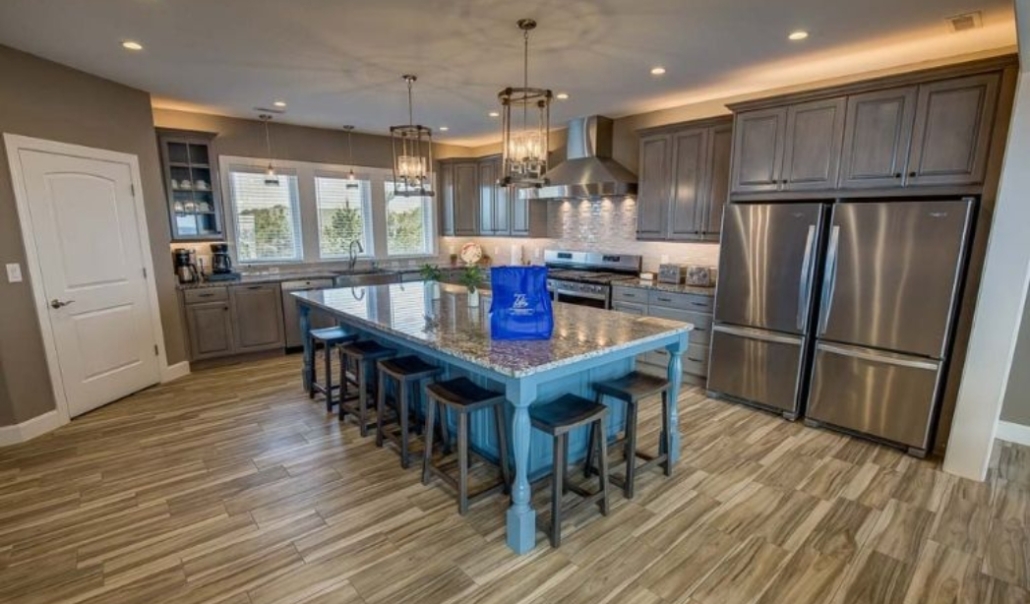
1. Kitchen Renovations
Kitchens remain one of the most impactful spaces to renovate — both for everyday function and resale value. In Virginia Beach, kitchen upgrades are often influenced by coastal living, energy efficiency, and the need for materials that perform well in humid, salt-air environments.
Key trends and practical considerations
These updates are shaped not just by personal taste, but also by the local climate, housing stock, and evolving lifestyle needs of Virginia Beach homeowners.
- Open Layouts: Many homeowners remove walls to create better flow between the kitchen, dining, and living areas — especially in older beach-style homes where space can feel compartmentalized.
- Moisture-Resistant Materials: Choosing materials like quartz countertops, ceramic or porcelain tile, and marine-grade cabinetry ensures long-term durability in a coastal climate.
- Energy-Efficient Appliances: ENERGY STAR-rated refrigerators, dishwashers, and induction cooktops are popular choices for cutting down utility costs and reducing environmental impact.
- Coastal Design Aesthetics: Light wood tones, soft whites, and ocean-inspired blues are commonly used to reflect the region’s laid-back coastal vibe.
Improved Lighting and Ventilation: Recessed lighting, under-cabinet task lights, and upgraded range hoods help improve visibility and airflow, which is especially important in humid months.
Virginia Beach homeowners often aim for a balance between aesthetics and performance — especially in kitchens that need to support entertaining, family life, and exposure to the elements.
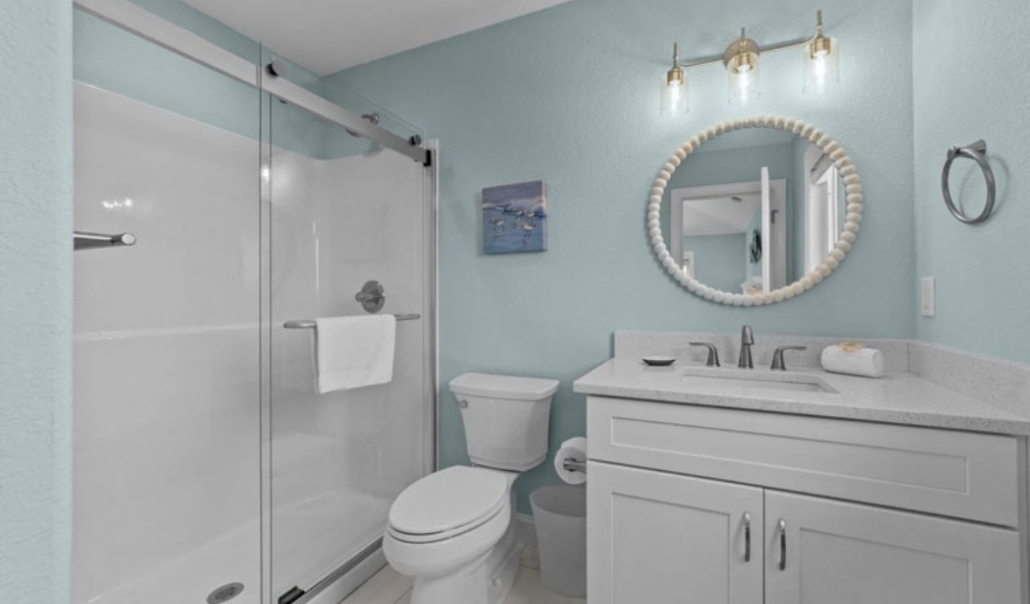
2. Bathroom Upgrades
Bathroom renovations are another high-impact home improvement project in Virginia Beach, offering both functional upgrades and an opportunity to create a more comfortable, spa-like environment. Whether it’s a simple refresh or a full-scale remodel, bathrooms in coastal homes often need to balance moisture control, durability, and efficient use of space.
What to Consider When Remodeling a Bathroom in Virginia Beach
Renovation choices in Virginia Beach are often shaped by the coastal environment and the need for long-lasting performance.Salt air, high humidity, and changing seasons all shape the materials and features homeowners tend to prioritize in coastal home design.
- Walk-in showers and wet rooms have become popular for their sleek design, accessibility, and easy maintenance. Many homeowners are replacing traditional tubs with barrier-free showers using slip-resistant tile and frameless glass for a modern, open look.
- Proper ventilation is essential in high-humidity areas. Upgraded exhaust fans and mold-resistant drywall help prevent moisture buildup, which is a common issue in older homes.
- Durable materials like porcelain tile, waterproof vinyl flooring, and solid surface counters are favored for their resistance to warping, staining, and general wear in damp conditions.
- Water-saving fixtures such as low-flow toilets and efficient showerheads are also gaining popularity for their utility savings and environmental benefits.
Finally, coastal-inspired design elements — soft colors, natural textures, and light finishes — reflect the relaxed Virginia Beach lifestyle while creating a fresh, timeless space.
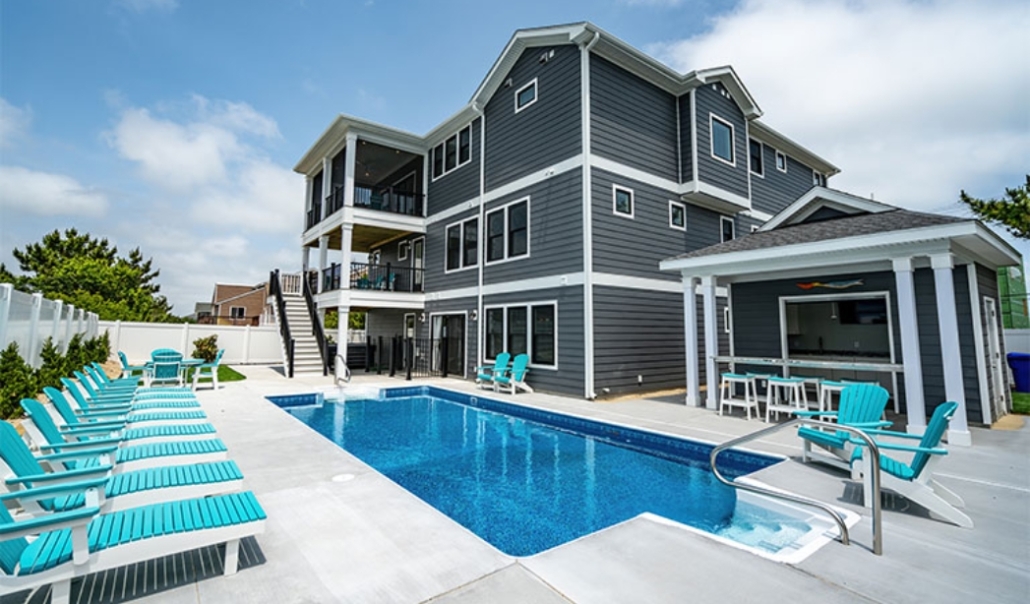
3. Outdoor Living Spaces – Decks, Patios & Pools
With Virginia Beach’s mild climate and strong outdoor culture, expanding usable living space into the backyard is a top priority for many homeowners. Outdoor upgrades like decks, patios, and pools are a core part of home improvement Virginia Beach homeowners pursue — practical investments that enhance both enjoyment and property value.
Decks
Composite decking and pressure-treated lumber are popular choices due to their durability in salt air and high humidity. Homeowners often opt for raised or wraparound decks that extend from the kitchen or living room, creating seamless indoor-outdoor flow. Proper sealing and ventilation underneath the deck are key to long-term performance in a coastal environment.
Patios
Paver patios and natural stone surfaces are favored for their low maintenance and ability to handle heavy rain or shifting temperatures. They offer flexible layout options and are often paired with outdoor kitchens, fire pits, or pergolas to extend usability throughout spring, summer, and fall.
Pools
Pools are a high-value upgrade in many Virginia Beach neighborhoods. In-ground options remain popular, especially with features like sun shelves, saltwater systems, and integrated lighting. Screen enclosures or fencing are often added for privacy, safety, and pest control.
Designing with durability, drainage, and seasonal usability in mind ensures your outdoor space remains functional and inviting all year.
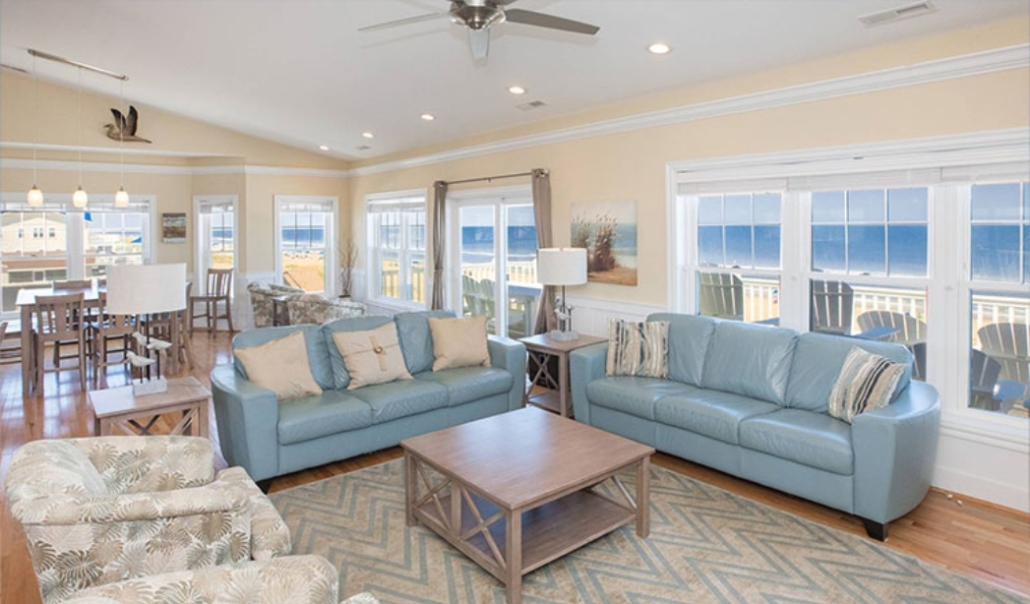
4. Energy-Efficient Window & Door Replacements
Replacing windows and doors is one of the most effective ways to improve energy efficiency, comfort, and coastal durability in Virginia Beach homes. As a key part of home improvement Virginia Beach homeowners often prioritize, these upgrades help regulate indoor temperatures, reduce utility bills, and protect interiors from salt air and moisture.
Impact-Resistant Windows
Many homeowners opt for double- or triple-pane windows with low-E coatings and insulated frames. These materials reduce heat transfer, which is especially useful during Virginia Beach’s hot summers and cool winters. In storm-prone areas, impact-resistant glass also provides added protection against wind and debris.
Fiberglass and Vinyl Frames
Unlike wood, which can swell or warp in high humidity, fiberglass and vinyl frames are better suited to the coastal climate. They require minimal maintenance and offer strong thermal performance over time.
Sealed & Insulated Doors
Exterior doors with proper weatherstripping and foam-core insulation prevent drafts and water intrusion. Fiberglass entry doors are especially popular for their energy efficiency and resistance to corrosion.
For homes near the coast or in flood zones, these upgrades not only improve efficiency but can also help meet code requirements and lower insurance premiums.
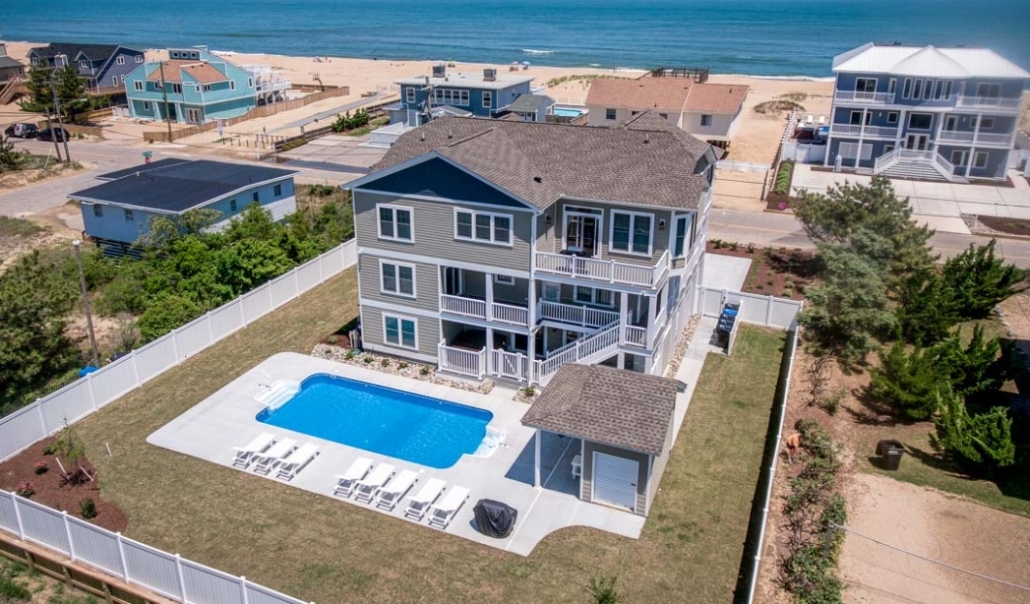
5. Roofing, Siding & Exterior Resurfacing
In a coastal environment like Virginia Beach, exterior surfaces take the brunt of sun, wind, salt air, and seasonal storms. Upgrading your roofing and siding isn’t just about curb appeal — it’s about protecting your investment and ensuring long-term structural resilience.
Roofing Materials for Coastal Durability
Asphalt shingles remain a common choice, but many homeowners are turning to architectural shingles or metal roofing for added wind resistance and longevity. Metal roofs, in particular, offer superior performance against salt corrosion and can last 40–70 years with minimal upkeep.
Siding Options That Withstand Salt Air
Vinyl siding is cost-effective and widely used, but for maximum durability in coastal conditions, fiber cement siding is often preferred. It resists rot, pests, and warping, and holds paint better over time. Some homeowners also opt for composite or engineered wood products designed for high-moisture environments.
Exterior Resurfacing and Maintenance
Regular resurfacing — including repainting, sealing, or replacing trim — helps preserve the home’s exterior from weathering. Many Virginia Beach homeowners also install rain screens or upgraded gutters to manage heavy rainfall more effectively.
Choosing the right materials for your exterior not only improves appearance but also extends the life of your home in a challenging coastal climate.
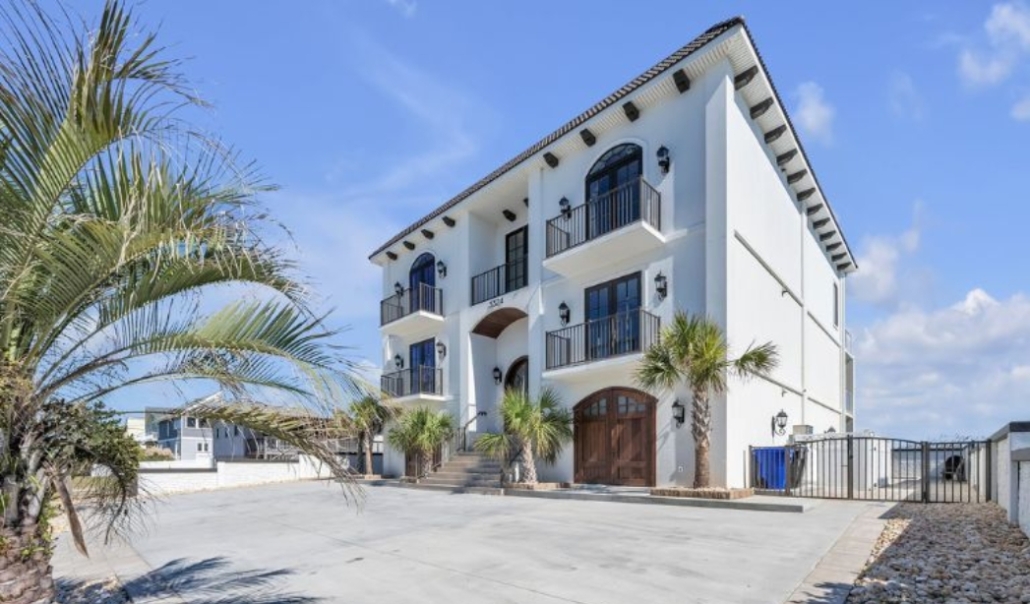
6. Smart HVAC and Insulation Enhancements
In Virginia Beach, where summers are hot and humid and winters can be damp and chilly, efficient climate control is essential. HVAC and insulation upgrades are a smart part of home improvement Virginia Beach homeowners rely on to improve comfort, reduce energy costs, and ease strain on home systems.
HVAC Systems Built for Humid Climates
Modern heat pumps and variable-speed HVAC systems are popular in Virginia Beach due to their ability to adjust output based on demand. These systems offer better humidity control, quieter operation, and increased energy savings compared to traditional units.Smart thermostats provide precise, programmable control, making it easier to maintain consistent indoor temperatures year-round.
Insulation That Handles Moisture and Salt Air
In coastal environments, insulation must resist mold, mildew, and moisture infiltration. Closed-cell spray foam is commonly used in crawl spaces and attics for its moisture barrier properties and air-sealing capabilities. Blown-in cellulose and fiberglass batts are also used, especially when paired with proper vapor barriers.
Sealing & Ventilation
Proper air sealing around ducts, windows, and doors — along with controlled ventilation — ensures conditioned air stays inside while helping remove excess humidity. This is especially important in older homes with less efficient envelopes.
These improvements boost comfort, protect structural materials, and help homeowners comply with modern energy codes and rebate programs.
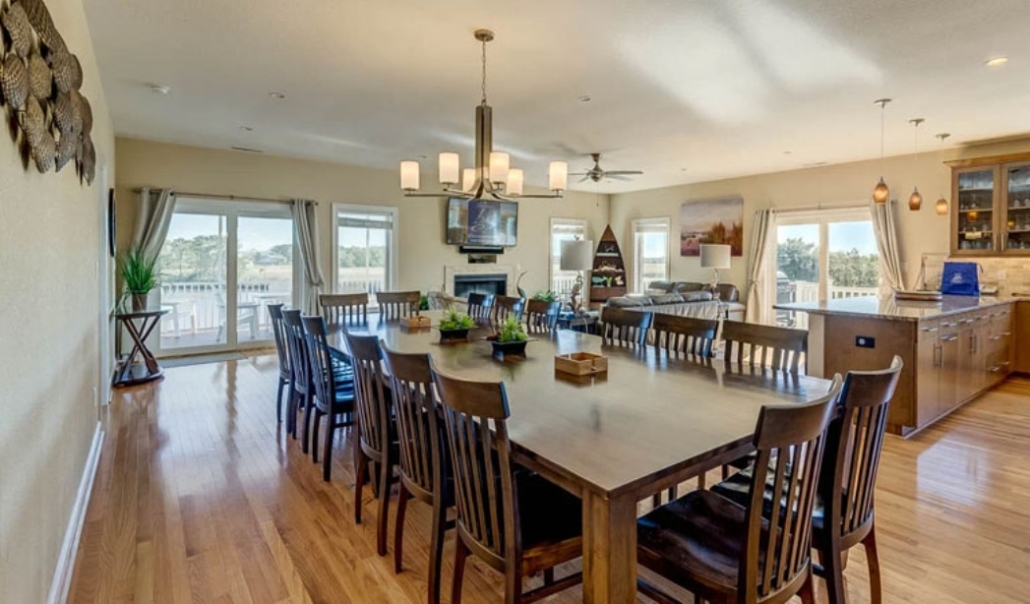
7. Whole-Home Remodels
For homeowners with aging layouts, structural issues, or changing lifestyle needs, a whole-home remodel can offer a fresh start without relocating. In Virginia Beach, these large-scale renovations often involve modernizing outdated systems, improving energy efficiency, and reconfiguring interior spaces for better function and flow.
Why Homeowners Choose Full Renovations
Whole-home remodels are often pursued when multiple rooms need updates or when additions are planned to accommodate growing families or multigenerational living. These projects allow for cohesive design choices across the entire home — from flooring and cabinetry to lighting and layout.
Coastal-Specific Planning Considerations
Homes near the coast may require upgrades to meet current building codes, especially for wind resistance, flood elevation, and moisture control. Remodeling also provides an opportunity to improve ventilation, reinforce foundations, and install storm-resistant materials.
Challenges and Timelines
Because these remodels often include structural work, they typically require architectural plans, city permits, and a longer project timeline. However, the result is a modernized, more resilient home built to suit both current needs and future resale value.
Why Homeowners Choose RBC Homes
Our custom home renovations reflect the coastal lifestyle of Virginia Beach — resilient, refined, and designed with purpose. The following projects highlight how we approach home improvement with a focus on smart design, functionality, and long-term performance in a coastal environment.
American Dream
This oceanfront property is a prime example of luxury home improvement in Virginia Beach. Featuring full interior remodeling, wraparound decks, a custom kitchen with dual appliances, and a ground-level sports bar, the design blends coastal style with comfort, function, and high-end finishes across three levels.
Aquadesiac
Aquadesiac demonstrates how thoughtful design and remodeling can elevate a waterfront home. This project includes floor-to-ceiling windows, a chef’s kitchen, and upgraded outdoor living with a heated pool, oceanfront decks, and hot tub — a standout example of oceanfront home improvement in Virginia Beach.
Back Bay
Back Bay is a clear example of whole-home renovation tailored to the Virginia Beach lifestyle. With an open-concept layout, panoramic water views, modern finishes, and expansive outdoor spaces, this project blends layout reconfiguration with lifestyle-driven design and environmental responsiveness.
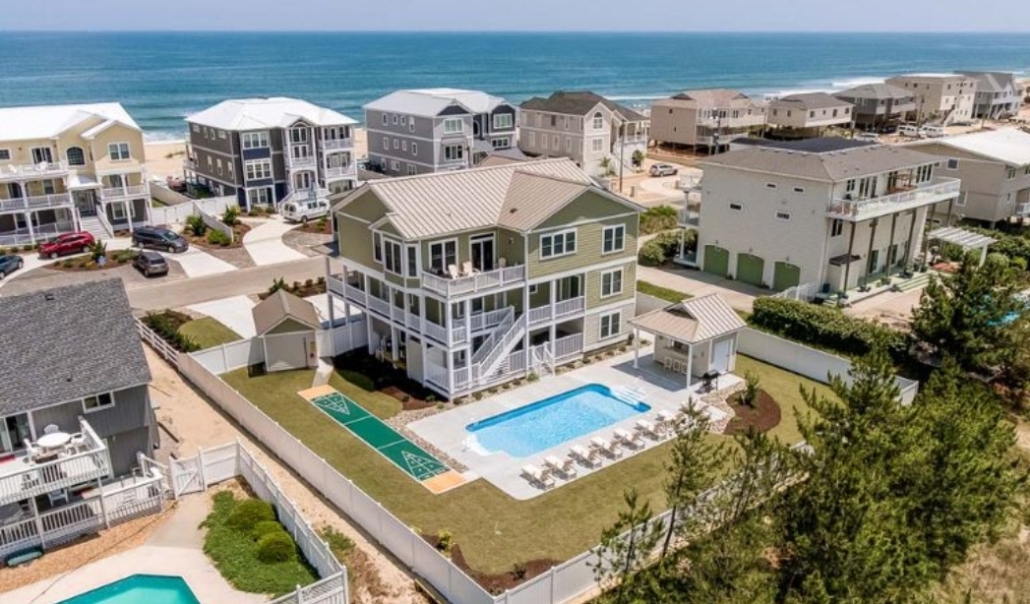
Virginia Beach’s Home Improvement Regulations
Before starting any home improvement project in Virginia Beach, it’s important to understand the permitting and regulatory environment. From building permits to coastal restrictions and HOA rules, following the proper process helps avoid delays and ensures your renovation meets local codes.
What Permits Are Required?
Most structural changes — including roofing, siding, decks, additions, and any mechanical, electrical, or plumbing work — require permits from the City of Virginia Beach. Even interior renovations like kitchen and bathroom remodels may need permits if walls are moved, systems are altered, or load-bearing elements are affected. Smaller updates, such as painting or flooring replacement, typically don’t require permitting.
How to Work With Local Inspectors
Inspectors in Virginia Beach are essential for verifying code compliance and maintaining safety throughout the remodeling process. It’s helpful to plan for multiple inspection phases: framing, electrical, insulation, and final walkthroughs. Being responsive, maintaining clear communication, and working with licensed contractors who know the process can make inspections smoother and faster.
HOA and Coastal Zone Considerations
If your home is part of a homeowners association (HOA), you may need architectural approval in addition to city permits. For properties near the oceanfront or Back Bay, Coastal Primary Sand Dune and Chesapeake Bay Preservation Area regulations may apply. These impact where and how you can build, especially with regard to setbacks, flood zones, and environmental impact.
Understanding and planning for these requirements early in the process can save time, protect your investment, and ensure your project is both compliant and resilient.
Smart Budgeting & Financing Tips
Planning a home improvement project in Virginia Beach isn’t just about design and materials — it’s also about making smart financial decisions. Knowing what to expect in terms of costs, returns, and available incentives can help you plan a project that adds real value without overspending.
What Does It Really Cost to Remodel in Virginia Beach?
Costs can vary widely depending on project scope, location, and the condition of the existing home. On average:
- Kitchen remodels range from $25,000 to $100,000+
- Bathroom upgrades typically cost $10,000 to $30,000
- Whole-home renovations can exceed $150,000, especially in waterfront areas Labor costs and permitting fees in Virginia Beach are often higher than the national average due to coastal code requirements and demand for skilled contractors.
How to Prioritize Projects Based on ROI
Not all improvements deliver the same return on investment. Projects with the strongest ROI in this market often include:
- Minor kitchen remodels
- Window and door replacements
- Exterior improvements like siding or roofing Functional upgrades that improve energy efficiency and curb appeal tend to perform better than purely cosmetic updates.
Available Incentives for Energy-Efficient Improvements
Virginia Beach homeowners may qualify for local or federal incentives when installing energy-efficient windows, HVAC systems, insulation, or solar features. Programs like the federal Energy Efficient Home Improvement Credit (25C) can offer tax credits on qualifying upgrades. Always check current incentive programs before finalizing your project scope — they can significantly offset upfront costs.
Budgeting with a long-term perspective helps ensure your renovation pays off in comfort, performance, and potential resale value.
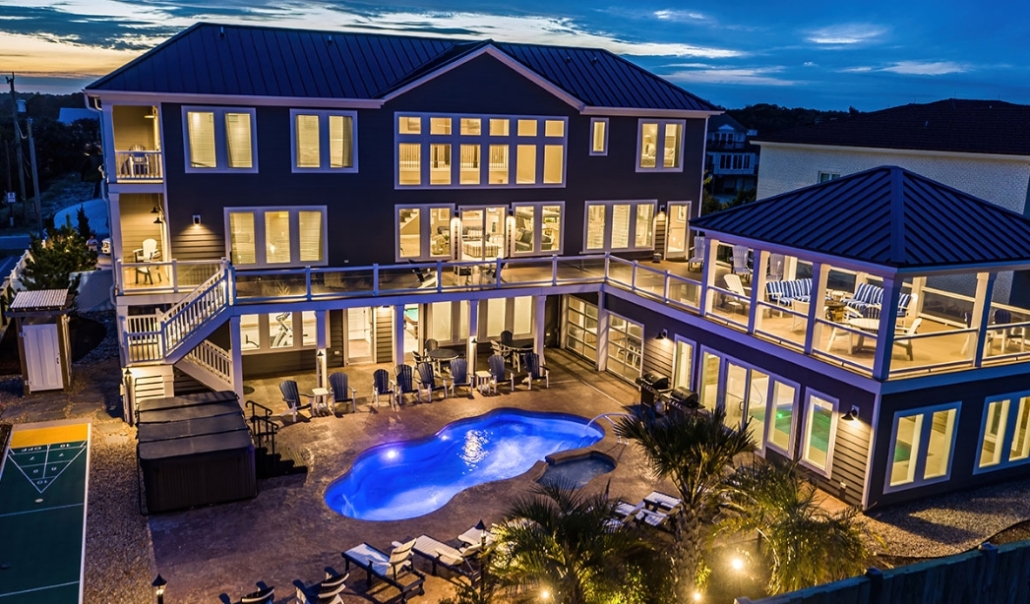
Designing for the Coast
Living near the water comes with incredible views — and a unique set of building challenges. In Virginia Beach, smart home design means selecting materials and systems that can handle salt air, wind, humidity, and seasonal extremes. Long-term durability, not just style, should guide every decision.
Materials That Last Near Salt Air
Salt air is highly corrosive and can shorten the life of many common building materials. For exteriors, fiber cement siding, composite decking, and stainless steel hardware hold up better than untreated wood or standard metal fixtures. Inside the home, moisture-resistant drywall, ceramic tile, and sealed stone are preferred in bathrooms and kitchens. Choosing materials rated for high-humidity or coastal environments can prevent rot, rust, and long-term wear.
Storm-Resistant Windows, Siding & Roofs
Virginia Beach homes are exposed to tropical storms and high winds, especially in open or waterfront areas. Impact-rated windows and doors, reinforced roofing systems, and securely anchored siding can reduce storm damage significantly. Many homeowners also choose metal roofing for its wind resistance and long lifespan, or install hurricane clips and reinforced soffits during renovations for added protection.
Tips for Year-Round Comfort with Smart Insulation & HVAC
Coastal humidity and temperature swings require insulation and HVAC systems that do more than just heat and cool. Closed-cell spray foam or properly installed fiberglass batts can improve energy efficiency while also creating a barrier against moisture. Paired with variable-speed HVAC systems and smart thermostats, these upgrades keep indoor temperatures stable and help reduce utility costs all year long — even through humid summers and damp winters.
Designing with the coast in mind doesn’t just protect your investment — it ensures your home stays comfortable, efficient, and low-maintenance for years to come.
Project Planning Timeline
Every successful renovation starts with a clear roadmap. Here’s how we guide homeowners through the process, step by step.
What to Expect During a Remodel
Home improvement in Virginia Beach doesn’t happen overnight — but with the right plan in place, it can be a smooth and rewarding experience. Understanding the steps involved helps set realistic expectations for both timeline and decision-making.
Initial Consultation
We start by listening. During this stage, we discuss your goals, budget, timeline, and the unique conditions of your property — especially important in coastal or HOA-regulated areas.
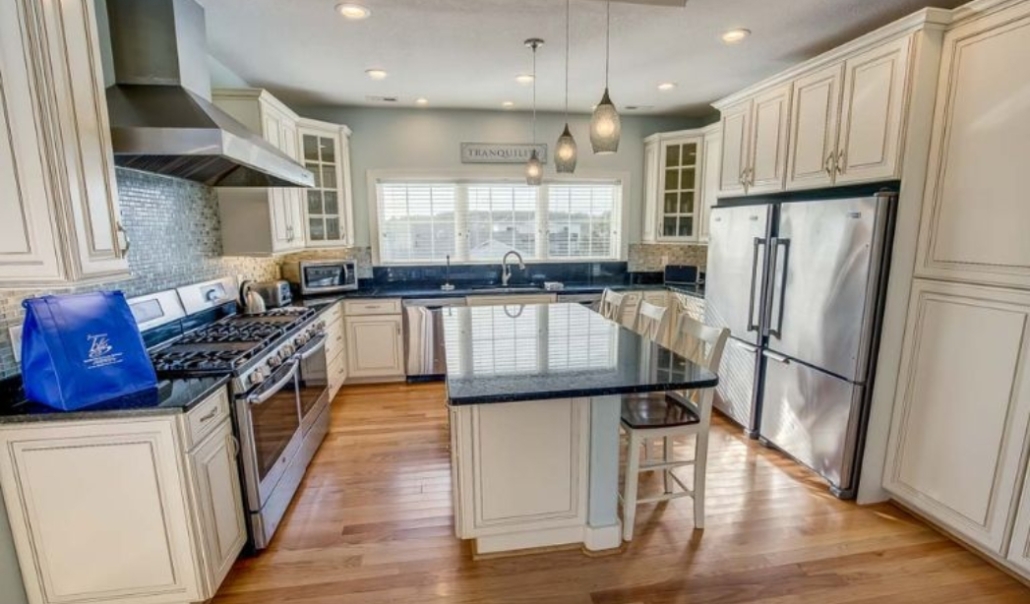
Design Phase
Our team develops a tailored design based on your needs, style, and structural requirements. This may include floor plans, material selections, and early-stage cost estimates. Collaboration is key here.
Permitting
Once the design is finalized, we handle all necessary permit applications. This includes navigating Virginia Beach’s zoning, coastal regulations, and HOA approvals if applicable.
Construction
We coordinate the entire build process — managing contractors, scheduling inspections, and maintaining a clean, safe job site. Our communication remains transparent from start to finish.
Final Walkthrough
Before we close the project, we walk through the space with you to ensure every detail meets expectations. Any final adjustments are addressed promptly, and we provide guidance on maintenance and care.
FAQs About Home Improvement in Virginia Beach
Fall and early winter are ideal times to start a renovation, as demand tends to dip and contractor availability improves. However, scheduling depends on project scope, permitting timelines, and material lead times.
Yes — permits are required for remodels involving plumbing, electrical, or structural work in Virginia Beach. Minor updates like painting or replacing fixtures usually don’t need one.
A general contractor oversees construction, while a design-build firm handles everything — from concept and design to permits and construction. Our approach keeps communication streamlined and the project fully integrated from start to finish.
Timelines vary. A kitchen or bathroom remodel may take 4–8 weeks, while a full home renovation can span several months, depending on scope, complexity, and permitting.
As of 2024, Virginia Beach’s housing market has leveled off, but coastal demand keeps prices high. Updated homes with modern features often retain or gain value, especially in sought-after areas.
A livable salary for a single adult in Virginia Beach is typically around $55,000–$65,000 per year, depending on housing, transportation, and personal lifestyle.
Building a custom home in Virginia Beach typically costs between $200 and $400 per square foot, with higher prices for waterfront properties due to stricter coastal regulations and material demands.
Yes. With strong schools, vibrant neighborhoods, and access to both the beach and city amenities, Virginia Beach continues to be a sought-after market for both primary residences and investment properties.
Conclusion & Call to Action
Home improvement in Virginia Beach involves more than just aesthetics — it’s about making smart, lasting upgrades that fit the coastal environment, comply with local regulations, and improve the way you live. From kitchen remodels and bathroom upgrades to outdoor living spaces and full-scale renovations, there are countless ways to elevate your home’s comfort, function, and value.
Whether you’re just beginning to plan or ready to start designing, we’re here to help guide you through every step of the process — from concept to completion.
Ready to improve your Virginia Beach home?
Contact RBC Homes today to schedule a consultation and explore what’s possible.
